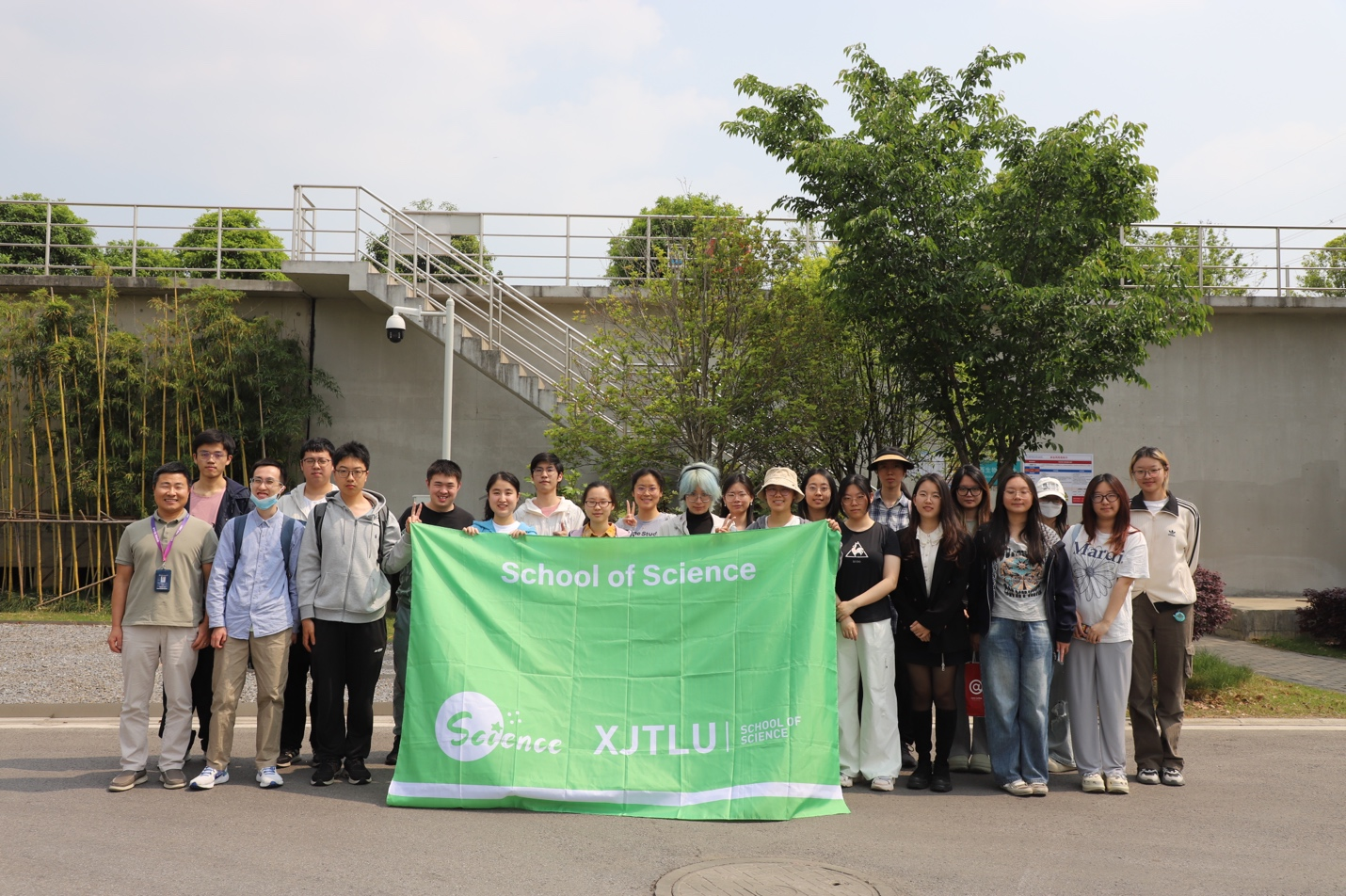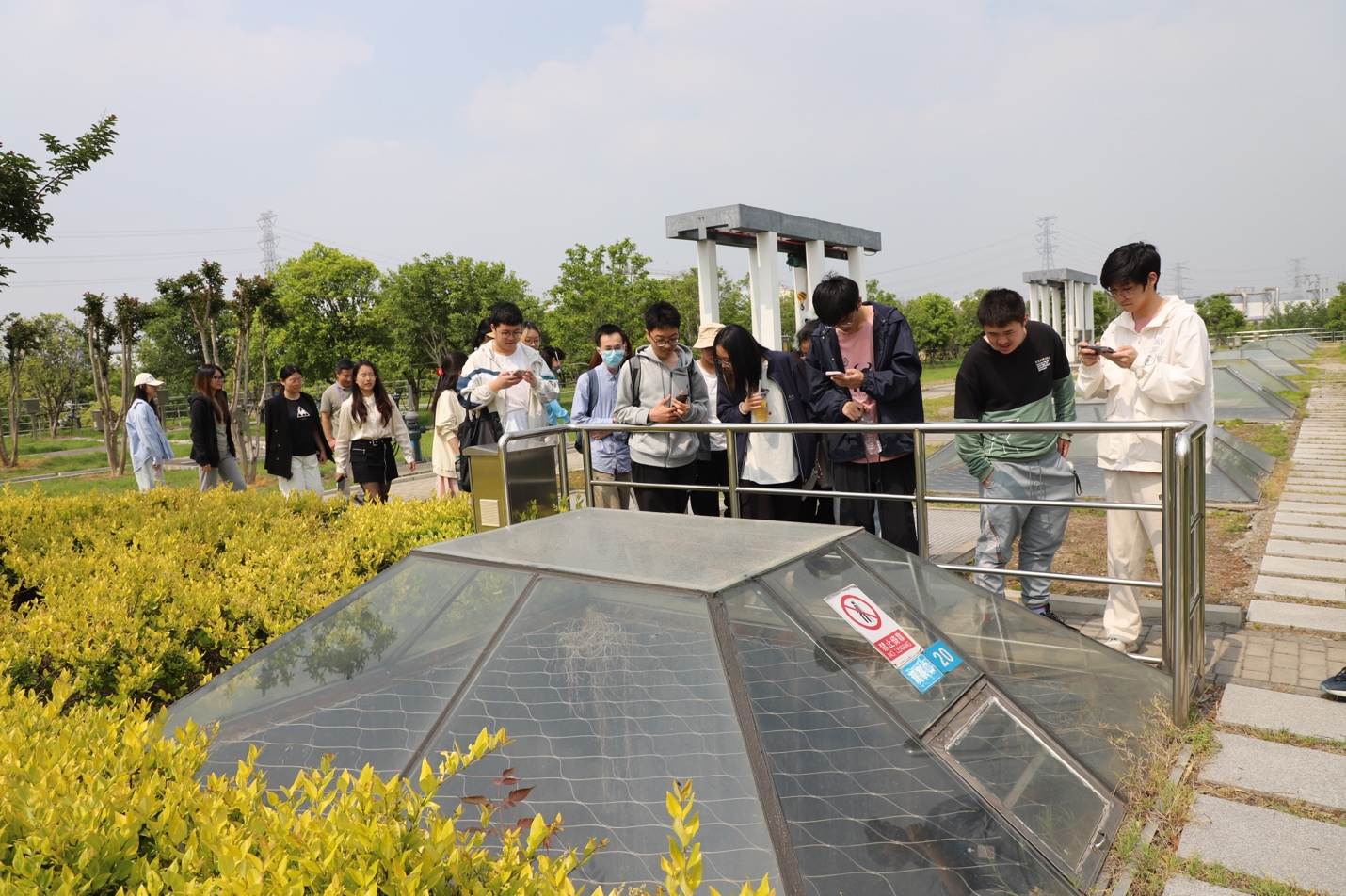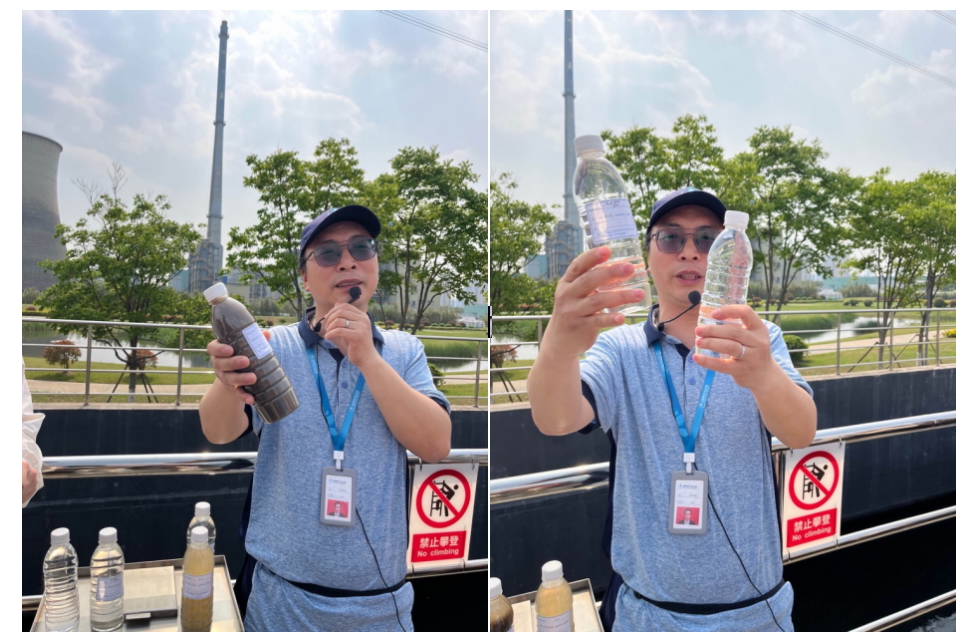21 May 2025
Recently, a unique "metamorphosis" unfolded in the exciting module BIO106 (The Biology of Microbes) at the Department of Biological Sciences and Bioinformatics, School of Science, Xi’an Jiaotong-Liverpool University (XJTLU). Led by Dr. Zhu Yongtao, the module leader of BIO106, over 20 students stepped off campus to visit the Qingyuan Huayan No.2 Wastewater Treatment Plant in Suzhou Industrial Park. This field trip seamlessly integrated classroom knowledge about microbial wastewater treatment with real-world applications.

Mr. Jiao Ganlai, Production Operation Supervisor at Qingyuan Huayan, provided students with a warm welcome and detailed walkthrough of the wastewater treatment process. Key steps included physical sedimentation in the primary sedimentation tank, microbial treatment in the aeration tanks, further refinement in the secondary sedimentation tank, and disinfection. Theoretical concepts from lectures—such as how microorganisms remove organic carbon, nitrogen, and phosphorus pollutants through respiration and metabolism, while reducing the biological oxygen demand (BOD) of wastewater—came to life. During the tour, our students witnessed firsthand how microorganisms perform their "magic," transforming murky wastewater into clear, clean water.

Following the treatment workflow, Mr. Jiao guided students through each processing unit. Gasps of amazement filled the air as they observed foul-smelling, dark wastewater gradually evolve into crystal-clear streams through multiple stages. This visual journey underscored a critical insight: it is the synergy between microorganisms’ remarkable capabilities and advanced scientific processes that breathes new life into urban wastewater and creates sustainable solution for our planet.

The tour concluded with a visit to the facility’s "backyard garden." Here, treated wastewater is repurposed to create an ecological wetland teeming with fish and birds, while also irrigating lush vegetation across the plant. The site’s vibrant biodiversity and thriving ecosystem stand as a testament to microorganisms’ pivotal role in wastewater treatment—turning waste into treasure—and the dedicated efforts of the plant’s professional staff.
The visit left a profound impression on the students, who shared glowing feedback:
“It was very helpful for me to have a more vivid and intuitive understanding of the specific process of sewage treatment. I was deeply impressed. I sincerely hope that there will be more such opportunities for on-site visits or experiences!” by Bingqing Jia (Biological Sciences)
“The visit to the wastewater treatment plant revealed the vital role of technology in environmental protection. Witnessing the transformation of foul-smelling sewage into clear water through processes like screening, sedimentation, biological treatment, efficient processing and UV/NaClO disinfection was enlightening.” by Shu Wang (Biological Sciences)
“We gain great fun to have such a field trip in this summer. It was a great opportunity to enjoy the fresh air and admire the beautiful wetland landscape. Additionally, the real-world context at the water treatment plant helped us better understand the lecture content, which had initially been challenging to grasp. “ by Junze Yang (Biological Sciences)
“First of all the trip was very good and I learned a lot from it. It offered us a chance to both see the application of knowledge and learn on site. This is the first time that I have visited such enterprises which are so different from laboratories and are related to life. I really liked this trip and hope to participate in more activities like this.” by Siyuan Feng (Biological Sciences)
Dr. Yongtao Zhu, the module leader, stated: "Microorganisms play a pivotal role in Earth’s ecosystems. Billions of years ago, they fundamentally transformed our planet’s atmospheric composition through processes like oxygenic photosynthesis and nitrogen fixation, creating the environmental conditions essential for the evolution of plants, animals, and humans. To this day, microbial respiratory and metabolic activities continuously drive the global cycling of carbon, nitrogen, and other critical elements, ensuring the regeneration of Earth’s resources."
"The Microbiology module (BIO106) at School of Science in XJTLU systematically explores microbial taxonomy, ultrastructure, growth, metabolism, genetics, and their profound impacts on both natural ecosystems and human health. During the field visit to Qingyuan Huayan Water Services, students directly observed engineered applications of microorganisms in organic matter removal during wastewater treatment, witnessing their indispensable role in water purification. This activity seamlessly bridged classroom theories with real-world engineering practices. By integrating textbook knowledge with industrial case studies, students not only deepened their understanding of microbial functionalities but also gained inspiration for applying scientific principles to solve practical challenges. It was a highly successful demonstration of immersive, industry-aligned education."
By Dr Yongtao Zhu
Review:Professor John Moraros
21 May 2025







